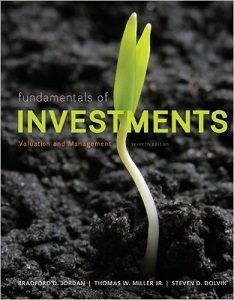Certificates of deposit (CDs) are investments that help you grow your money safely, and they can be used in a variety of ways. If you only have a few needs, it's simple to put money into a CD and earn more than you could in a savings account. If you have special goals or demands, you can incorporate more complicated strategies.
CD fundamentals
A certificate of deposit (CD) is a type of account offered by your bank or credit union. You earn interest on the money you deposit, just like you would in a traditional savings account. CDs often yield greater interest rates than other bank accounts, but there's a catch: you have to leave your money in the account for a certain amount of time before you can withdraw it. A six-month CD, for example, is intended to be left alone for six months. CDs can be rented for periods ranging from six months to five years (or longer). Longer-term CDs often pay more than shorter-term CDs due to your increased commitment, although there are exceptions. Some CDs allow you to alter your interest rate over time. You'll have to pay an early withdrawal penalty if you take your money out of a CD before it matures (before the stated period of time has passed).A CD is a type of investment
When it comes to the risk of losing money in your account, CDs are a relatively safe investment. CDs held at a federally insured bank or credit union are covered up to $250,000. They're ideal for instances where you can't afford to lose your money. For example, you may be saving for a down payment on a new home that you hope to purchase in two or three years. Because you won't need the money right away, locking it up for a higher interest rate can make sense. CDs may or may not be the best investment for longer-term goals, such as a retirement that is more than 20 years away. It's worthwhile to meet with a fee-only financial advisor to discuss your long-term objectives and all of your possibilities. When you use a credit union, your money is only safe if it is FDIC insured or covered by NCUSIF insurance.What is the Best Way to Invest in CDs
To purchase a CD, simply tell your bank which of their CD products you want (for example, the six-month or 18-month CD) and how much money you want to put into it. Some banks have low minimums ($1,000 or less), while others allow you to start with as little as $50. CDs are frequently available for purchase online, especially from online-only institutions. When your CD reaches its expiration date, you should receive a message outlining your options. In most circumstances, you'll be able to:- Allow the CD to be renewed (into another CD with the same length of time).
- Purchase a different CD (switching from a six-month to a one-year CD, for example).
- Put the money in a savings or checking account.
- Take the money out.
Investment Methodologies
People frequently choose a CD based on the length of time they want to keep their money locked up, as well as interest rates and the amount of time they have available. There's nothing wrong with that method—you'll earn more than you would in a savings account, and a straightforward technique is frequently the easiest to implement. There are numerous strategies to handle your CDs if you want to maximize your CD investment. Laddering is the practice of purchasing many CDs with varied maturity dates, ranging from short to lengthy. This allows you to keep money on hand rather than invest it all while interest rates are at their highest. When your "target" arrives, a bullet plan allows you to have all of your money available. You'll be able to earn more than you would in a savings account, and you'll be able to write a huge check when necessary. Short and long-term CDs are the focus of a barbell approach (while skipping medium-term CDs). You can just avoid medium-term interest rates if they are unappealing. Managers of Investments You can always hire someone to manage your CD investments for you if you don't want to do it yourself. Of course, knowing who you're working with and avoiding scams and Ponzi schemes are essential. If you hire someone, they might use brokered CDs, which aren't the same as regular CDs in your bank account. Any investment manager should be asked the following questions:- Is my money protected by the US government?
- When will I receive my refund?
- Is it possible to withdraw money early, and if so, what is the penalty?
- Is this rate guaranteed, and how much will I earn?
- Is there ever a change in the interest rate?
- Have you got access to my money?


